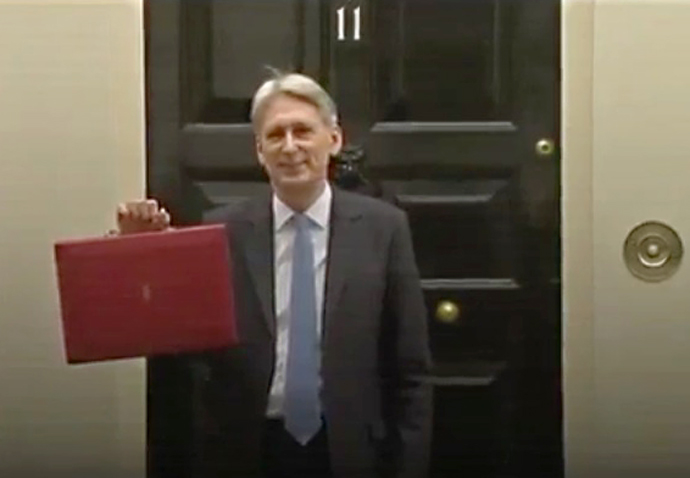Women’s voices are missing from Brexit debate
Friday, 18th January 2019

Chancellor Philip Hammond
• THE Brexit debate has consistently failed to represent women’s voices. During the 2016 referendum campaign women’s voices were hardly heard: detailed content analysis found that 91 per cent of press coverage went to men, and only one in four people discussing Brexit on TV were women. Even then they were more likely to be a citizen than a politician, businesswoman or expert.
Coverage since the referendum has continued to neglect women. Industries such as manufacturing, financial services, fishing and agriculture have been debated, all sectors where the workforce is predominantly male. Links to retail, childcare and social care have largely been omitted from media coverage and parliamentary debates. Yet the Department of Health and Social Care reported that gaps in social care left by EU migrants would have to be filled by women leaving formal employment to step in. Women already provide the bulk of unpaid care, at an estimated value of £77billion.
Different Brexit scenarios predict different degrees of economic downturn, but under all scenarios the Treasury forecasts a negative impact on our economy. And when the economy suffers women suffer more. Analysis of the impact of austerity cuts found that women have borne 86 per cent of cuts made through changes to taxes and benefits, with some groups of women hit particularly hard. Single disabled women with children can expect a 32 per cent loss in income by 2021.
Chancellor Philip Hammond said an end to austerity depends on the kind of Brexit agreed. A hard Brexit means higher household costs from greater tariffs on goods, and further punishment with more cuts to services and welfare.
We should be talking about the 62,000 migrant women working in the NHS we all rely on, or the 95,000 adult social care workers from the European Economic Area making up 13 per cent of the workforce in London. We should also be talking about our friends, neighbours and colleagues, all the EU citizens who will have to go through the Settled Status process to be able to continue to live in their own home.
A report from the Home Affairs Select Committee found that 20 per cent of EU citizens will struggle to qualify for Settled Status, the majority of whom will be women: full-time carers for children or relatives, deemed “economically inactive” by the Treasury and therefore lacking records from HMRC or the Department for Work and Pensions; victims of domestic abuse without access to their records or finances; women working in informal sectors without official paperwork, such as cleaning and informal care work; and older women who don’t realise they need to apply but make up three in four EU migrants over the age of 75.
Britain has a proud track record in securing and standing up for rights and protections of women. We will never forget the courageous women who fought for the right to equal pay for the same work in Dagenham. But as long as the workforce is divided along gender lines, we know that value matters and that shop assistants shouldn’t be paid less than warehouse workers or cleaners less than bin collectors.
It was the European Commission that took the UK government to court and won, forcing an expansion of the Equal Pay Act. One example of many of how women’s rights are better protected in a strong EU.
The political games being played in Parliament are sickening for the women who stand to lose most from a poor deal or no deal. As long as women are outnumbered 2:1 in Parliament there is no such thing as a meaningful vote. This is why the Women’s Equality Party is calling for a People’s Vote, but this time one that centres the voices and experience of women.
GUILENE MARCO and NIKKI UPPAL
Co-leaders, Islington branch,
Women’s Equality Party